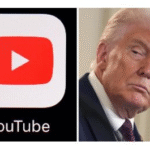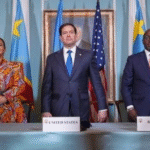Technology offers many opportunities innovation, learning, communication, efficiency, and capacity-building for the 21st century. However, it also brings challenges, especially for children who often lack the maturity to make sound choices about what they view online.
Children face online risks grouped into four main categories: content-related, contact-related, conduct-related, and contract-related risks.
Content-related risks include exposure to degrading or sexual content, violent or discriminatory material, hate speech, false information, and content promoting harmful behavior.
Contact-related risks involve child exploitation, discrimination, bullying, hate speech, threats, and manipulation leading to risky or sexual encounters.
Conduct-related risks include cyberbullying, sexting, revenge porn, identity theft, public humiliation, coercion, online fraud, and gambling.
These issues can harm children’s mental and emotional well-being, prompting Rwanda to adopt a Child Online Protection Policy to address them.
Pornography: A Growing Threat
Pornographic content has become easily accessible on social media and online platforms. Children can stumble upon such material even without intending to search for it.
In Rwanda, pornography consumption is on the rise, with some people becoming addicted to it to the point that it disrupts their daily lives and relationships.
Young people who spoke to IGIHE said they began watching pornography between ages 12 and 16, which in some cases led to early sexual activity.
“I was about 16 when I first watched porn. Everyone at home was asleep, and I got curious,” one youth said.
Another added, “I started in primary school when I got my first small phone. By 16, I was already having sex.”
Government Response
Pornography websites are among the top 20 most visited in Rwanda, highlighting the urgency of the problem.
To protect children from such exposure, the Government of Rwanda launched the Child Online Protection Policy in September 2025, outlining measures to safeguard minors using the internet.
The policy calls for collaboration among government institutions and internet service providers to identify and block harmful content, enforce regulations, and penalize platforms that refuse to remove inappropriate materials.
It also proposes international-standard systems to monitor and track potential online offenders.
Moreover, the policy encourages digital service providers to adhere to ethical guidelines reflecting Rwandan values, especially concerning child safety online.
Key Objectives
- Prevent children from accessing inappropriate or harmful content.
- Protect children’s personal data and privacy.
- Strengthen cooperation between internet platforms, connected devices, and online streaming services.
- Ensure age-appropriate advertising and transparency in online media.
- Require digital service providers to flag or block content unsuitable for children.
The policy also introduces a free national hotline where citizens can report harmful content, seek help, or request the removal of explicit material.
Broader Vision
Children under 18 make up nearly half of Rwanda’s population. With the country rapidly expanding internet access and digitizing public services, ensuring child safety online has become a national priority.
The policy envisions a future where every child can use the internet safely, learn digital skills, and enjoy online rights without exposure to harm.
Its implementation involves various agencies, including the Ministries of Justice, Gender and Family Promotion, Local Government, ICT, RIB, RURA, RISA, REB, and the Rwanda National Police.
Over the next five years, the government plans to invest 1.52 billion Rwandan francs to roll out and monitor the policy’s effectiveness nationwide.





























I enjoyed your take on this subject. Keep writing!
**glpro**
glpro is a natural dietary supplement designed to promote balanced blood sugar levels and curb sugar cravings.
**mitolyn**
mitolyn a nature-inspired supplement crafted to elevate metabolic activity and support sustainable weight management.
**prodentim**
prodentim an advanced probiotic formulation designed to support exceptional oral hygiene while fortifying teeth and gums.
**vittaburn**
vittaburn is a liquid dietary supplement formulated to support healthy weight reduction by increasing metabolic rate, reducing hunger, and promoting fat loss.
**synaptigen**
synaptigen is a next-generation brain support supplement that blends natural nootropics, adaptogens
**zencortex**
zencortex contains only the natural ingredients that are effective in supporting incredible hearing naturally.
**yu sleep**
yusleep is a gentle, nano-enhanced nightly blend designed to help you drift off quickly, stay asleep longer, and wake feeling clear.
**nitric boost**
nitric boost is a dietary formula crafted to enhance vitality and promote overall well-being.
**glucore**
glucore is a nutritional supplement that is given to patients daily to assist in maintaining healthy blood sugar and metabolic rates.
**wildgut**
wildgutis a precision-crafted nutritional blend designed to nurture your dog’s digestive tract.
**breathe**
breathe is a plant-powered tincture crafted to promote lung performance and enhance your breathing quality.
**energeia**
energeia is the first and only recipe that targets the root cause of stubborn belly fat and Deadly visceral fat.
**boostaro**
boostaro is a specially crafted dietary supplement for men who want to elevate their overall health and vitality.
**pinealxt**
pinealxt is a revolutionary supplement that promotes proper pineal gland function and energy levels to support healthy body function.
**prostabliss**
prostabliss is a carefully developed dietary formula aimed at nurturing prostate vitality and improving urinary comfort.
**potent stream**
potent stream is engineered to promote prostate well-being by counteracting the residue that can build up from hard-water minerals within the urinary tract.
**hepato burn**
hepato burn is a premium nutritional formula designed to enhance liver function, boost metabolism, and support natural fat breakdown.
**hepatoburn**
hepatoburn is a potent, plant-based formula created to promote optimal liver performance and naturally stimulate fat-burning mechanisms.
y40jwf
**cellufend**
cellufend is a natural supplement developed to support balanced blood sugar levels through a blend of botanical extracts and essential nutrients.
**prodentim**
prodentim is a forward-thinking oral wellness blend crafted to nurture and maintain a balanced mouth microbiome.
**flow force max**
flow force max delivers a forward-thinking, plant-focused way to support prostate health—while also helping maintain everyday energy, libido, and overall vitality.
**revitag**
revitag is a daily skin-support formula created to promote a healthy complexion and visibly diminish the appearance of skin tags.
**neuro genica**
neuro genica is a dietary supplement formulated to support nerve health and ease discomfort associated with neuropathy.
**sleeplean**
sleeplean is a US-trusted, naturally focused nighttime support formula that helps your body burn fat while you rest.
**memorylift**
memorylift is an innovative dietary formula designed to naturally nurture brain wellness and sharpen cognitive performance.
3fbzo2